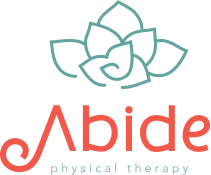Did you know that the best way to avoid dehydration is to drink before you get thirsty?
Hydration is important because the body is comprised mostly of water. The proper balance between water and electrolytes in our bodies will determine how most of our systems function, including our nerves, muscles, and joints. What most don’t realize is that when we drink water, our body temperature, heart rate, metabolism, and blood pressure are better controlled.
Research indicates that drinking water aids in digestion and oftentimes aids in a more efficient metabolism. I am constantly educating my patients on the value and importance of an increase in fluid intake as a result of its great benefits. Water is important to the body at all times.
Do you ever exercise?
When you exercise, your muscles generate heat. To keep from burning up, your body needs to get rid of that heat. The main way the body discards heat in warm weather is through sweat. As sweat evaporates, it cools our tissues. Lots of sweating will reduce the body’s water level, and this loss of fluid affects normal bodily functions. Research indicates that slight changes in body water might even create sports performance issues as a result of the physiological changes that happen in the body.
Water is all you need if you are planning to be active in a low or moderate intensity activity, such as walking, for only an hour or less. If you plan to be exercising longer than that, or if you anticipate being out in the sun for more than a few hours, you may want to hydrate with a sports drink to replace electrolytes lost through perspiration.
Alcoholic and caffeinated beverages, such as coffee, teas, and soda are not bad sources of fluid intake, however, they are not recommended for optimal hydration.
What about the foods I eat? Do they count?
Yes, they do count. It’s tough to measure how much water intake you receive through foods, but water based foods are great in addition to your recommended daily water intake. Foods such as salads, yogurt, soup, and water-based fruits (watermelon, oranges, etc.) are a great daily addition!
How much should I be drinking?
Well, everyone is different. The 8-oz rule does not hold true for every body type. If you want to know specifics, a nutritionist or health care provider should be able to speak to that.
According to the American College of Sports Medicine, to avoid dehydration, active people should drink at least 16–20 ounces of fluid one to two hours before an outdoor activity.
Following the activity, you should consume 6 to 12 ounces of fluid every 10 to 15 minutes that you are outside.
When you are finished with the activity, you should drink another 16 to 24 ounces (2–3 cups). Those who aren’t active should generally aim for 60 ounces (about 2 L) each day. Aside from the recommended minimal guidelines, I educate all patients to shoot for 80oz each day.
How do I know if I am dehydrated?
One way to make sure you are properly hydrated is to check your urine.
Clear or Pale: You are in the Clear!
Darker than Pale: Drink up, Buttercup!
Hydration is an important aspect of how I educate all my patients. What I have found is that combining physical therapy, nutrition and hydration education, my patients are able to see quicker results.







